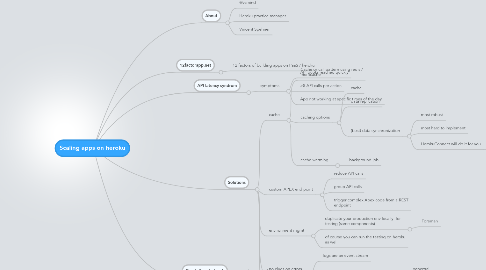
1. About
1.1. @vzmind
1.2. Heroku practice manager
1.3. Vincent Spehner
2. Check the playbook
2.1. share your ideas
3. Solutions
3.1. cache
3.1.1. Cache or call pattern using redis / memcache
3.1.2. caching options
3.1.2.1. cache
3.1.2.2. data replication
3.1.2.3. (best) data synchronization
3.1.2.3.1. most robust
3.1.2.3.2. most hard to implement
3.1.2.3.3. HerokuConnect will do it for you
3.1.3. cache warming
3.1.3.1. background job
3.2. custom APEX end point
3.2.1. reduce API calls
3.2.2. group API calls
3.2.3. trigger complex Apex code from a REST endpoint
3.3. environment mgmt
3.3.1. duplicate your production env locally for testing (same components)
3.3.1.1. Foreman
3.3.2. of course you can run the testing on heroku as well
3.4. no clues on errors
3.4.1. logs are an event stream
3.4.2. use tools that store the logs on DB or monitor them
3.4.2.1. papertrail
3.4.2.2. new relic
3.5. App capacity estimation
3.5.1. blitz
4. API latency syndrom
4.1. symptoms
4.1.1. API quota reached quickly
4.1.2. >5 API calls per action
4.1.3. App not working at specific times of the day
